If there are books that you'd like me to review, or that you think I might have already reviewed but haven't listed here, let me know! Amazingly, these days it's hard to keep up, which is WONDERFUL! Jody x
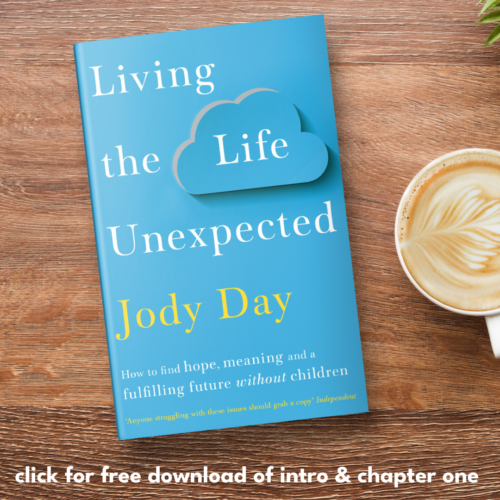 Jody Day (2020). Living the Life Unexpected: How to Find Hope, Meaning and a Fulfilling Future Without Children
Jody Day (2020). Living the Life Unexpected: How to Find Hope, Meaning and a Fulfilling Future Without Children
(2nd Edition: 19 March 2020: UK: Bluebird/PanMacmillan). Download a free sample of the introduction and chapter 1 here
The fully revised and updated 2nd edition (well, 3rd if you include my self-published 2013 edition) of my much-loved book, ‘Living the Life Unexpected’ was published by Bluebird (PanMacmillan) in the UK on 19 March 2020. With fifty (I know, fifty!) prestigious endorsements inside the front and back jacket, a lovely new cover, a new subtitle, How to Find Hope, Meaning and a Fulfilling Future Without Children, and new content. With 400+ positive reader reviews on Amazon/Goodreads, it’s a book that changes lives; it certainly changed mine. Read some of the endorsements and reader reviews here.
Book reviews and recommendations (in date order, most recent first)
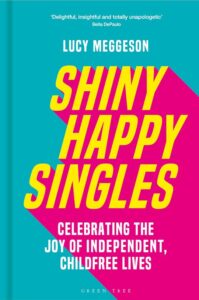 Lucy Meggeson (June 19, 2025). Shiny Happy Singles: Celebrating the Joy of Independent Childfree Lives. UK: Bloomsbury.
Lucy Meggeson (June 19, 2025). Shiny Happy Singles: Celebrating the Joy of Independent Childfree Lives. UK: Bloomsbury.
USE THIS LINK & CODE ‘GATEWAY20’ FOR A 20% DISCOUNT UNTIL 31 AUGUST 2025.
Whether you’re a single woman yourself or know them as friends, colleagues, neighbours or family, you’re probably bored and puzzled by the negative, reductive and frankly unrecognisable way society portrays them. But what if instead of seeing ‘singleness’ as either a deficit female identity to be diagnosed, or some colour-suppliment lifestyle fabulousness to be ridiculed, we were to accept that singleness, whether chosen or not, is simply a perfectly normal way to spend part or all of your adult life–and then to get curious about the many ways this might be experienced? And although singleness might include being a mother, often it doesn’t and again, this can be freeing or painful, and sometimes both at different times! Because life isn’t simple, and neither are single women, and certainly not any of the many fascinating, candid, vulnerable and powerful single women Lucy Meggeson has spoken to over the years for her podcast, and for this book. Single women have never deserved to be the butt of the joke, and with the UN estimating that singleness in UK women has risen to 49% since the 1970s, they’re barely even a minority any more! Thank you to Lucy for giving the modern single woman the space to be heard for who she really is, and not who society and the press think she is–or should be.
Instagram: @thrivesolowithlucymeggeson Lucy’s website: https://www.lucymeggeson.com/
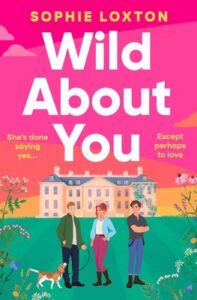 Sophie Loxton (May 2025). Wild About You. UK: Simon & Schuster.
Sophie Loxton (May 2025). Wild About You. UK: Simon & Schuster.
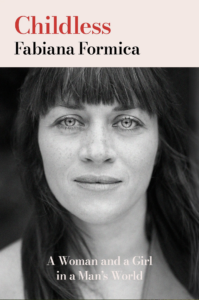
Fabiana Formica (May 2025). Childless: A Woman and a Girl in a Man’s World. USA: Nianima Press
How far are you willing to go to have a child? This is the question that this extraordinary memoir explores as Fabiana, an Italian-American-Romanian artist, actress, and writer in her mid-forties, contemplates whether she really will use her frozen eggs to have a child alone. Told in part through the letters she writes to her imaginary daughter Nia, and the often painful exhumation of family secrets and lies, Fabiana tries to make sense of what it means to be a childless and single woman in a patriarchal society, as well as what it means to her personally. A traumatic childhood is unpacked in unsparing detail, and her journey through therapy to heal it is quite unlike anything I’ve read outside of psychotherapeutic case studies, and even more powerful coming directly from the client. As the unmothered daughter of an unmothered daughter myself, I recognised much of the longing to love and be loved she projected onto her unborn daughter, the emotionally unavailable, damaged and damaging men she finds herself attracted to, and also to the raw courage of her healing process. By turns philosophical enquiry, unflinching memoir and feminist reportage, this profound book can be a challenging read, and is thus best taken slowly, allowing the depth of it to settle into your soul. An important book for all single women without children, whether by choice or chance, looking for a writer who can explore both the shadow and the light of that misunderstood experience. Ultimately, Childless is a book about healing intergenerational trauma, familial love and neglect, forgiveness and liberation. An extraordinary memoir that will stay with me for a long time.
Instagram @fabiana_formica website: fabianaformica.substack.com
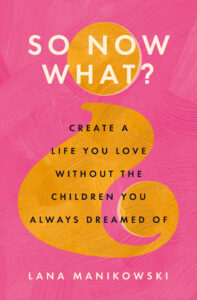 Lana Manikowski (April 2025). So Now What? Create a Life Your Love Without the Children You Always Dreamed Of.(USA: LM Publishing).
Lana Manikowski (April 2025). So Now What? Create a Life Your Love Without the Children You Always Dreamed Of.(USA: LM Publishing).
I’m proud to have written the foreword for this book. In it, which I’ve extracted from below:
“Whether it’s rebuilding your shattered relationship with your body and dreams after being blindsided by infertility, charting a new course within existing relationships with friends and family while also refreshing your friendship circle, or compassionately discerning the difference between cutting yourself some slack while grieving or avoiding the painful work of healing from the heartbreak of thwarted motherhood, Lana has it covered…. In particular, her sections on dealing with ‘difficult questions’ about our parental status, and reframing how to manage family-focused holidays, including Halloween, Christmas, New Year and Mother’s Day feel innovative, attainable and worth the guided effort she shares, step-by-step. Even though I am many years into my own recovery from unexplained infertility, I found new insights here.
Whilst this book focuses on the experience of heterosexual, partnered women who’ve experienced fertility treatments, there is wisdom here for all of us unexpectedly living a life without children. Upbeat, focused, grounded and compassionate, Lana’s book is a warm, precise and elegantly crafted addition to the growing canon of literature for the childless-not-by-choice.”
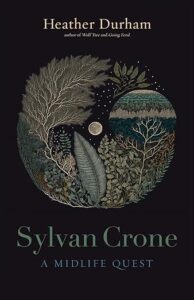 Heather Durham (March 2025). Sylvan Crone: A Midlfe Quest. USA: Wayfarer Books.
Heather Durham (March 2025). Sylvan Crone: A Midlfe Quest. USA: Wayfarer Books. Heather Durham is a naturalist and contemplative writer exploring the science and mystery of internal and external landscapes, seeking meaning and solace as a feral human in the more-than-human world. Her first memoir, Going Feral: Field Notes on Wonder and Wanderlust, was selected as a Next Generation Indie Book Awards Finalist in Nature Writing, and her second collection, Wolf Tree: An Ecopsychological Memoir in Essays, won a Nautilus Gold Award for Memoir in Essays. I was honoured to be invited to review Sylvan Crone, her third ‘memoir-in-essays’, in which she explores midlife existential questions through her explorations into folklore, feminism, ecophysiology, mental illness, and mysticism.
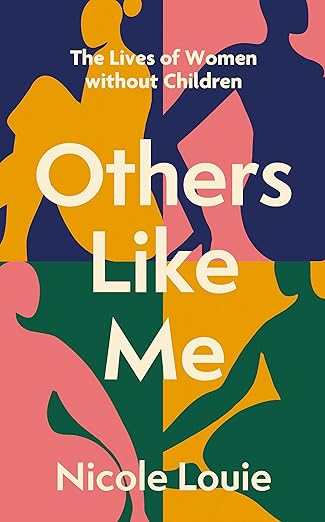 Nicole Louie (June 2024). Others Like Me: The Lives of Women Without Children. London: Dialogue Books/Hachette.
Nicole Louie (June 2024). Others Like Me: The Lives of Women Without Children. London: Dialogue Books/Hachette.You can follow Nicole on Instagram @bynicolelouie and find her book in bookshops or online.
Kat Brown (Editor) (March 2024). No One Talks About This Stuff: Twenty-Two Stories of Almost Parenthood. UK: Unbound
Edited by British journalist Kat Brown (who is childless herself), and with essays from Yvonne John (one of Gateway Women’s UK Reignite Weekend facilitators), Dr Stella Duffy OBE (a prominent writer and a regular panellist on Gateway Women’s Fireside Wisdom webinars), Dr Rageshri Dhairyawan (a former GW member and an author in her own right with 2024’s ‘Unheard: The Practice of Medical Silencing‘) amongst others, this collection also features a very personal essay of Jody Day’s ‘Pronatalism and Me: Waking Up from the Trance of Motherhood’. In this essay, Jody examines how the unexamined ideology of pronatalism negatively influenced her entire life course and made her experience of coming to terms with my childlessness that much harder — and how it negatively impacts mothers too. It is Jody’s genuine belief that women without children aren’t going to see the kind of equity and respect they long for until they start to identify, call out and unhook from pronatalism. Be aware that the book opens with a very challenging journey of secondary infertility from a writer who is a mother, which has taken many childless readers by surprise. The collection has been very well-received by the mainstream media and has now been published in a US edition, making it another important addition to the growing body of literature around non-parenthood. Read the introduction and first two essays (including Jody’s) here.
You can find Kat Brown on Instagram @KatBrownWrites Kat’s website: https://www.katbrownwrites.com/
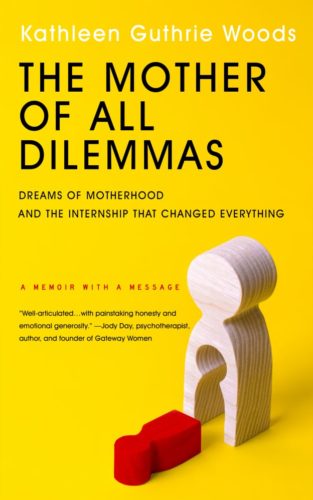 Kathleen Guthrie Woods (2021) The Mother of All Dilemmas: Dreams of Motherhood and the Internship that Changed Everything.
Kathleen Guthrie Woods (2021) The Mother of All Dilemmas: Dreams of Motherhood and the Internship that Changed Everything.
When you’re a single and childless-by-circumstance woman approaching the event horizon of your fertility, still hopeful that somehow partnership and children might happen for you, one of the most common pieces of ‘helpful advice’ (and I use those quotes advisedly!) you might hear is, ‘Why don’t you just have one on your own?!’ It can also be phrased in the past tense, once you’re a little older, accompanied by that pitying head-tilt… These enquires are usually delivered as if this were (a) something that hadn’t ever occurred to you and (b) slam-dunk easy. When Guthrie Woods found herself in exactly that position – turning forty without Mr Right anywhere in sight – she decided it was time to seriously consider it. This book, ‘The Mother of All Dilemmas’ is the result: part memoir, part reportage, it records Guthrie-Woods’ painfully honest fact-finding mission as she tries to work out whether she had what it took to be a single mother by choice: emotionally, logistically, financially, physically and spiritually. One of the things that this book touches on, which is something many Gateway Women members have shared with me over the years, is how perhaps sometimes the desire for a child can be wrapped up in a deep and natural craving for daily love and physical companionship; being a single and childless not-by-choice woman over an extended period of time can lead to acute feelings of physical and emotional deprivation that are rarely discussed openly; I really appreciated how Guthrie Woods was determined to be honest with herself about her own motivations and whether they were reasonable expectations to place on a child. I feel this book should be thrust into the hands of every person who dares to say ‘Why not have one on your own?’ to a single, childless woman – I guarantee they’ll never say it again! I also think it would offer information and solace to a great many single childless women struggling to move forward either with pursuing the hope of solo parenthood or making peace with not doing so. This is the first time I’ve seen the dilemma of whether to have a baby, or not, as a single woman so well-articulated, and Guthrie Woods has done future generations of women facing this difficult choice a great service with her painstaking honesty and emotional generosity. More info here
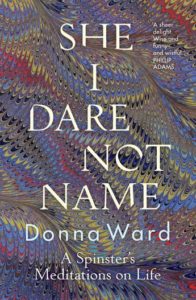 Donna Ward (2020) She I Dare Not Name: A Spinster’s Meditations on Life. AUS: Allen & Unwin
Donna Ward (2020) She I Dare Not Name: A Spinster’s Meditations on Life. AUS: Allen & Unwin
Part memoir and part social history, combined with a blistering critique of the sexism and pronatalism encountered daily by an involuntarily single and childless woman in her mid-sixties, She I Dare Not Name is an outstanding book. In it, Donna Ward, a psychotherapist and publisher, looks back over her life from childhood onwards to see if she can find ‘clues’ as to why she, amongst all her peers, did not marry and have children, even though it was her heart’s desire. It charts her desperation as she turns forty and none of her promising relationships or her engagement lead to partnership and motherhood; her complete lack of preparedness for knowing how to ‘live fifty’ and the growing acceptance she finds in her sixties after digging deep in treacherous unconscious shadowlands. Luminously written, eye-wateringly honest, thought-provoking, compassionate, provocative, funny and deeply moving, this unputdownable book explores what it’s like to live a full, interesting and meaningful life whilst also waiting for a life that never happened. Her meditations on the impact of unchosen silence and solitude and the dark night of the soul that she went through to make friends with them are both deeply spiritual and utterly relatable. An outstandingly humane and important book charting a ‘coming of age’ for modern women that is increasingly common and yet still hidden in plain sight both socially and in literature.
Instagram @DonnaWardWriter Donna’s website: https://donna-ward.com.au/author/
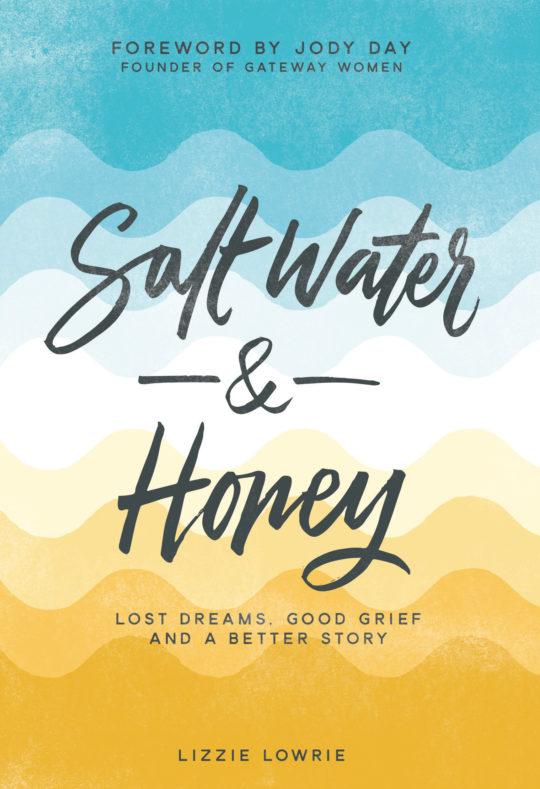 Lizzie Lowrie (2020). Saltwater & Honey: Lost Dreams, Good Grief and a Better Story (With a foreword by Jody Day)
Lizzie Lowrie (2020). Saltwater & Honey: Lost Dreams, Good Grief and a Better Story (With a foreword by Jody Day)
UK: Authentic
Extract from Jody’s forward: “Whether you consider yourself a Christian or not, if you’ve experienced involuntary childlessness, it’s quite likely that your faith in life (let alone your faith in God) has been seriously shaken. Because not only does the blatant unfairness of involuntary childlessness bring us face to face with the inconvenient truth that life isn’t actually fair, it also reveals how utterly clueless most faith-based communities and wider society are at acknowledging and supporting those grieving the family they longed for. And this is why Lizzie’s earthy, frank and humane memoir is so important. It’s a story of enduring multiple miscarriages whilst struggling to fit into her role as a Church of England Vicar’s wife; a world full of ‘middle-class conversation, extravagantly fertile women and cake,’ and the depths of despair she plumbed before making peace with that.”
Read Jody’s full foreword by clicking here
Book: http://saltwaterandhoney.org/book
Saltwater & Honey Facebook page: https://www.facebook.com/swhcommunity/
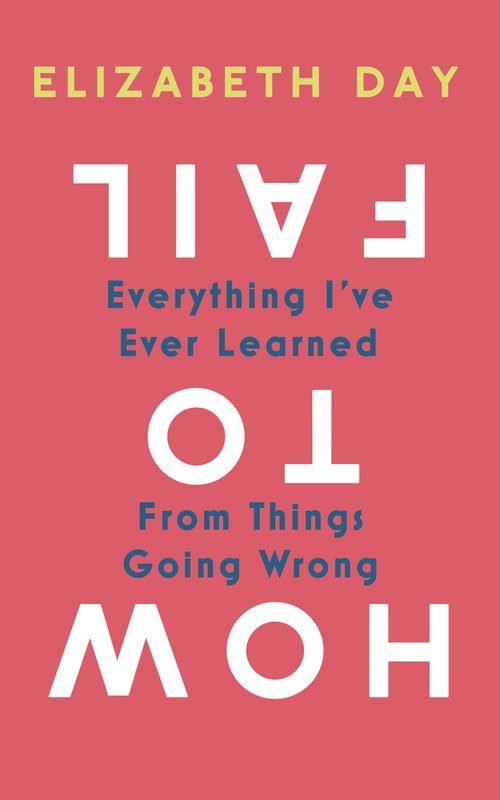 Elizabeth Day (2019). How to Fail: Everything I’ve Ever Learned from Things Going Wrong. UK: 4th Estate
Elizabeth Day (2019). How to Fail: Everything I’ve Ever Learned from Things Going Wrong. UK: 4th Estate
Part memoir, part manifesto for vulnerability and honesty, novelist Elizabeth Day’s non-fiction book (and eponymous ‘How to Fail’ podcast) lifts the lid on all the many ways she’s ‘failed’ at life including most relevantly for Gateway Women readers, at ‘Relationships’ and ‘Babies’ (she is divorced and childless after failed IVF), although there are gems in loads of the chapters, including for me those on ‘Work’ and ‘Anger’. She also includes experiences she’s learned from interviewing ‘successful’ people for her podcast about what they’d learned from failure, asking them for three instances. An ex celebrity-interviewee and jack-of-all-trades journalist (see her chapter on ‘Work’ for how that came about, those of us with people-pleasing tendencies may need to hide behind the sofa), she brings an acutely observant eye and ear to bear on the subject that most people spend their time only discussing with themselves or their therapists – what went wrong – and in this book turns that focus onto herself. The result is by turns poignant, funny, sad and above all, deeply relatable. If you’ve arrived at mid-life without a child, you’ll have your own ‘failures’ to nurse, I know I do. But I also know that I have learned more from them than I’ve ever learned from things going well. And that without them, I probably wouldn’t be the happy (reasonably), well-adjusted childless woman I am today.
Elizabeth Day’s website: www.elizabethdayonline.co.uk
‘How to Fail’ Podcast: www.elizabethdayonline.co.uk/podcast
Article by Elizabeth Day in ‘The Guardian” here
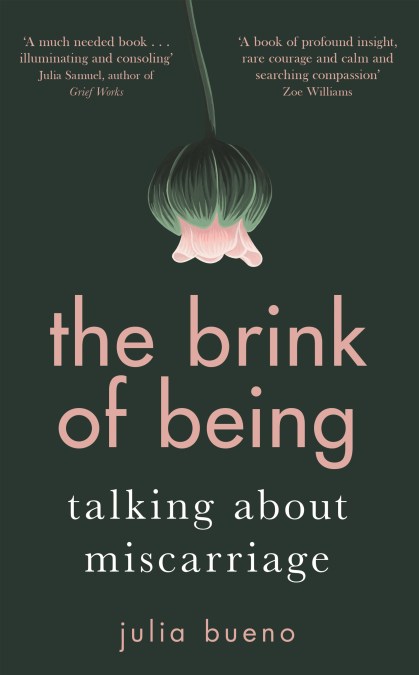 Julia Bueno (2019). The Brink of Being: Talking About Miscarriage. UK: Virago
Julia Bueno (2019). The Brink of Being: Talking About Miscarriage. UK: Virago
This gorgeously written book draws back the veil on something rarely spoken about in public (or even much in private), miscarriage, early-term loss, late loss and stillbirth – all inadequate terminology for the gut, heart, body and soul-wrenching experience of baby loss. Even considering how many private stories of baby loss I have heard through my work here at Gateway Women, this book still had the power to take me deeper into the visceral as well as the emotional heart of the experience in a way that I will never forget; reading this book has changed me. Julia’s own experience as the mother of four lost babies, allied to her work as a psychotherapist supporting women and couples recovering from miscarriage, gives this book its authority and humanity. Although the author does have living children, she doesn’t forget to mention the experience of those of us who did not go on to have a ‘rainbow baby’ (I am interviewed briefly) and thus remain permanently involuntarily childless after miscarriage. This humane, tender, courageous and illuminating book should become required reading for all who know, love, care for, manage or govern those women and couples whose lives have been forever changed by the heartbreak of miscarriage – whether they go on to create a biological family or not.
Julia Bueno’s website and blog: http://www.juliabueno.co.uk/
The author interviewed in The Daily Telegraph here
Publisher’s webpage for The Brink of Being
 Kate Kaufmann (2019). Do You Have Kids? Life When the Answer is No. US: SheWrites Press
Kate Kaufmann (2019). Do You Have Kids? Life When the Answer is No. US: SheWrites Press
Nine years in the writing due to Kate’s extensive research, the book features stories from women of all ages across the USA, ranging from their twenties to their nineties, some childless by choice, some by chance and quite a few that, as is usually the case with binary definitions, falling somewhere inbetween. What really grabbed my attention thought and what was most meaningful to me as a woman in her mid-fifties, no longer grieving my childlessness but rather embracing the opportunities a life without children offers, were Kate’s interviews and research into later life without children. The book also explores the thorny issue of ‘legacy’ both emotional, practical and financial for adults without children and digs deep into some of the ways that we can give back to society in ways that feel meaningful to us. This book is an important addition to the literature around living a full and meaningful life without children. Honest, vulnerable, insightful and thoroughly researched it deserves to become a staple in both social sciences departments and for private readers.
You can read my full blog review here: www.bit.ly/gw-kaufmann
http://www.katekaufmann.com/
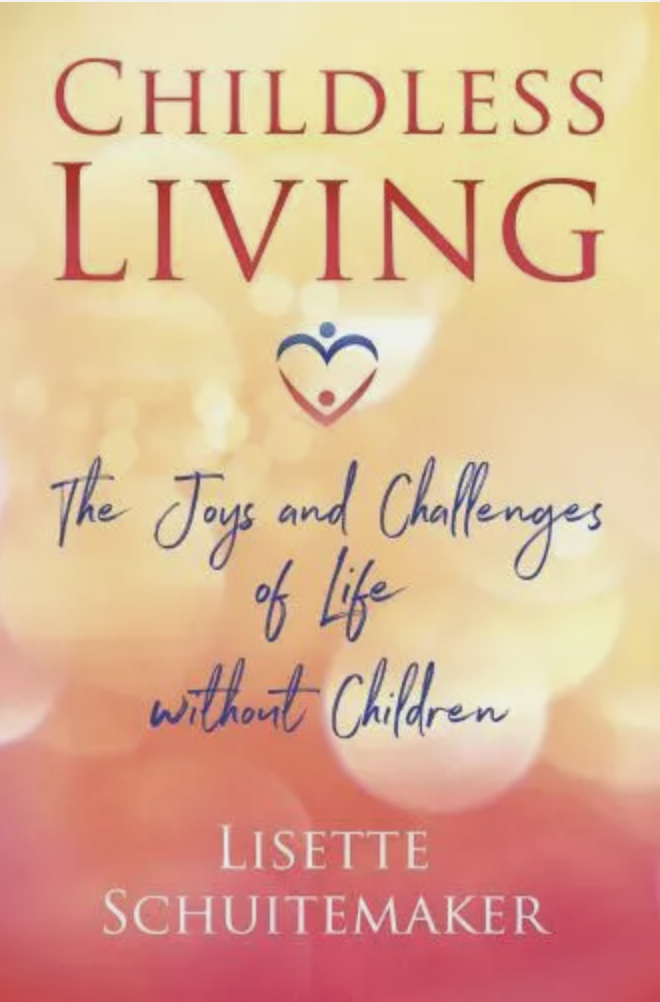 Lisette Schuitemaker (2019). Childless Living: The Joys and Challenges of Life Without Children. UK: Findhorn Press
Lisette Schuitemaker (2019). Childless Living: The Joys and Challenges of Life Without Children. UK: Findhorn Press
This book, like Kate Kaufmann’s above, is written by an author in her 60s. However, Lisette Schuitemaker is childfree by choice rather than involuntarily childless, despite the title of the book. This rather wrong-footed me at first, and certainly, it seems that at the beginning there are more stories and examples of women who have chosen not to be mothers than not. However, as the book unfolded, a better balance between childless/childfree stories emerged and I began to appreciate the breadth of conversations and thinking that had gone into the book as well as the structure of the book into four seasons – with, to me, perhaps the most interesting (because that’s the stage that I’m looking at next) of the Autumn and Winter of my life! This would be a particularly good book to read if you are an older childless/free woman and/or working through issues of legacy and practical stuff around wills, inheritances and later life planning, although I think younger readers would get a great deal out of it too.
https://lisetteschuitemaker.com/en/books/
 Lauren Carter (2019) Following Sea. CA: Turnstone Press
Lauren Carter (2019) Following Sea. CA: Turnstone Press
This poetry collection by an award-winning Canadian poet is a tribute to Lauren and her husband’s infertility and childlessness – the longing, desperation and resolution of that punctuating this extraordinary series of poems chronicling the hard and haunting history of her ancestral Scottish family’s emigration to Canada after the Highland Clearances.
You can read my full review and two poems from the collection here.
Lauren Carter’s website: http://laurencarter.ca/
Lorna Gibb (2019) Childless Voices: Stories of Longing, Loss, Resistance and Choice. UK: Granta Books
Lorna Gibb and her husband are childless due to her endometriosis (which, like so many cases, went undiagnosed for much too long). An academic, Lorna’s book is a mixture of little known/heard stories of childlessness in some of the poorest places in the world (where childless women can be banished from their communities as witches or treated as slaves), to the painful exclusion and heartbreak experienced by privileged Western women like herself. This is not an easy read and its easy to feel that our own ‘privileged’ pain is not worthy of comparison to the experience of some of our childless sisters around the world. However, if you can avoid that common thinking fallacy (pain is pain, there is sadly no shortage of it to go around in the world) and allow yourself to open your heart and mind to this book, you will never forget the women you meet within it or Lorna’s own experience in meeting them. Ends with a really useful chapter on how the childless are discriminated against at work and in inheritance law, etc, in the UK.
Read a fuller review of the book from The Guardian here.
Granta (publishers) page: http://grantabooks.com/childless-voices-2
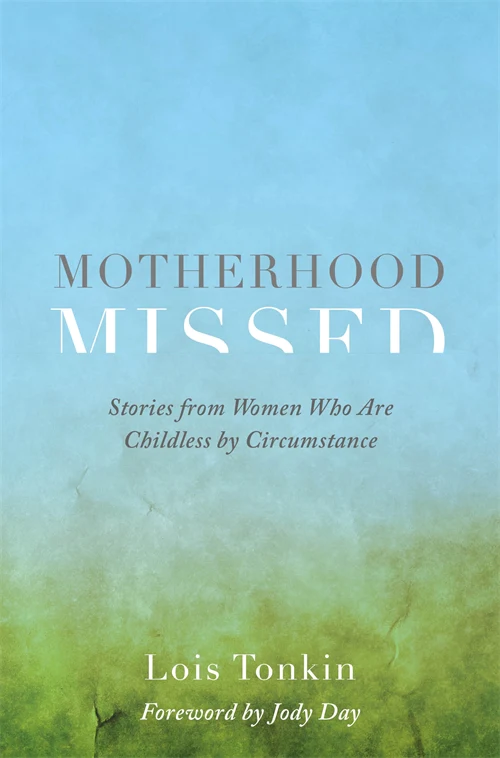 Dr. Lois Tonkin (2018). Motherhood Missed: Stories from Women who are Childless by Circumstance. UK: Jessica Kinsley Publications
Dr. Lois Tonkin (2018). Motherhood Missed: Stories from Women who are Childless by Circumstance. UK: Jessica Kinsley Publications
A selection of first-person stories, anonymised, edited (for length only) by Dr Lois Tonkin of New Zealand, a grief counsellor who (until her sadly early death in 2019) specialised in working with disenfranchised grief. I wrote the foreword for this important book, as well as helping Lois find many of the interviewees. Here is an extract from my Foreword: “Despite the fact that these are stories I hear every day, I have never had an opportunity to hear so many, and in such detail, all in one go. After reading this book I felt that I had lived many other lives, many other stories. I was deeply moved. The stories vary across age, culture, nationality and background but all share a similar theme – that of trying to make sense of the complexity of a modern woman’s choices within the confines of an economic and biological reality that isn’t always conducive to creating stable, welcoming partnership situations before fertility runs out”.
You can download a PDF of Jody’s foreword for this book here
Book details: https://uk.jkp.com/products/motherhood-missed
Christina Patterson (2018). The Art of Not Falling Apart: A Shockingly Honest Celebration of Life as an Adventure. UK: Atlantic Books
Christina Patterson is a well-known British journalist and broadcaster in her mid-50’s best known for her time on the quality, centre-left British newspaper, “The Independent.” In this series of essays, she writes of many things, including how chronic illness (lupus, cancer, horrendous skin problems) and an early foray into charismatic Christianity left her unable to form relationships in her 20s and 30s and the crushing grief of redundancy, singleness and childlessness in her 40s. A really good peek behind the scenes of a life that others might presume has been easy but which, like for so many of us, has included crushing grief and lost dreams.
Review by Bella dePaulo on Psych Central here
Christina Patterson’s website: https://christinapatterson.co.uk/book/

Jessica Hepburn (2018) 21 Miles: Swimming in Search of the Meaning of Motherhood. London: Unbound.
This book is a series of 21 interviews, with 21 inspirational women, some mothers, some childless and others childfree that Jessica approached with two questions: “Does motherhood make you happy?” and “Will you eat a meal with me to help me fatten up to swim the 21 miles of the English Channel.” I was honoured to be one of them (I’m the last chapter, for reasons that will make sense when you read it!) 21 Miles is a record of that year of training, swimming, eating, talking and thinking, mixed in with a poignant love story of what was going on in Jessica’s private life as the impact of all those years of unsuccessful treatments took their toll on her relationship. I read it in one big weekend gulp last year, which is when this interview was recorded, and I couldn’t recommend it enough to anyone who wants to understand what it means to be a 21st Century woman, whether motherhood is your destiny or not… It’s beautifully written and very thought-provoking.
You can watch/read my interview with Jessica here.
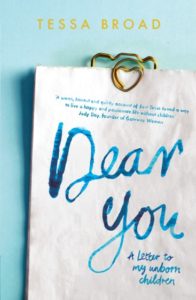 Tessa Broad (2017). Dear You: A Letter to My Unborn Children.
Tessa Broad (2017). Dear You: A Letter to My Unborn Children.
Most infertility memoirs end with a miracle baby; this one doesn’t… Instead, it’s a warm, honest and quirky account of Tessa’s very own ‘miracle’ – how she found a way to live a happy and passionate life without children. People often say to childless women, “You’d have made a great mother” without knowing how much that can hurt, because we’ll never know… Tessa has taken that ‘wondering’ we all know so well and has turned it into an exquisite love letter to the children she never met. But I don’t want to make out that this is a sad book, although Tessa, like all of us who are childless-not-by-choice, has lived through devastating loss. In fact, this is a very warm, generous and intimate account of what it’s like to come through that experience with humour and integrity.
You can read my fuller review here
Tessa’s website: www.tessabroad.co.uk
Yvonne John (2016) Dreaming of a Life Unlived: Intimate Stories and Portraits of Women Without Children. UK: Blurb Incorporated.
Yvonne John is a graduate of the Gateway Women Plan B Mentorship Programme and created this book of stories and portraits as part of her Plan B work. It contains stories about objects that women (such as myself) would have liked to have passed onto our children, and uses these as stepping off points for sharing our stories. Moving, intimate, surprising, diverse and vulnerable, this book records the stories of a group of women who each found themselves childless when it wasn’t the plan.
www.facebook.com/dreamingofalifeunlived
Julia Leigh (2016) Avalanche: A Love Story. UK, London: Faber & Faber. This is a gripping, heartbreaking visceral read from an Australian novelist. I could not put it down. As someone who has not experienced the baffling world of fertility treatments, I was shocked and appalled by Leigh’s experience, which I now know to be fairly unremarkable outside the regulated fertility sector of the UK. What this novel also does is to show how fertility treatments invade every aspect of your personality and waking life, affect your intimate, family and work relationships, and how devastating failure can be to a woman’s sense of sanity and self-esteem. If you ever wanted anyone to understand the nature of IVF/ART, this short, beautiful, powerful novel will do it. It has since been made into a one-woman play, which premiered in London at the Barbican in May 2019 as part of ‘There’s More to Life than Children’ day at FertiltyFest.com with British actor Maxine Peake in the role. It was brilliant and harrowing and got rave reviews.
Read Jody’s book review here: bit.ly/gw-avalanche
Faber’s book page for book here
 Justine Brooks Froelker (2015) Ever Upward: Overcoming the Lifelong Losses of Infertility to Own a Childfree Life. USA: Morgan James.
Justine Brooks Froelker (2015) Ever Upward: Overcoming the Lifelong Losses of Infertility to Own a Childfree Life. USA: Morgan James.
This is a personal memoir of how Justine and her husband Chad redefined their lives for the better after the heartbreaking losses of infertility and their subsequent decision not to adopt. It’s worth reading JUST for her honesty on the subject of NOT adopting, which is something that those of us who do or don’t choose that path are challenged on by friends, family and strangers over and over again. Also, her honesty with regard to how friendships are affected by the infertility journey is comforting to all of us who thought that such things must only have happened to us! Recommended for couples at any stage of their infertility journey, and for their family and friends to help them understand.
Megan Daum (2015). Selfish, Shallow and Self-Absorbed: Sixteen Writers on the Decision NOT to have Kids. Edited and with an Introduction by Meghan Daum. USA, New York: Picador (Macmillan).
This collection of 16 essays by childfree people (14 women, 2 men) who show that the decision to become and remain childfree is a far from straightforward path, and often involves wanting children at some point. Highly recommended to open our minds and hearts to the experience of our childfree sisters (and brothers) away from the usual media narratives.
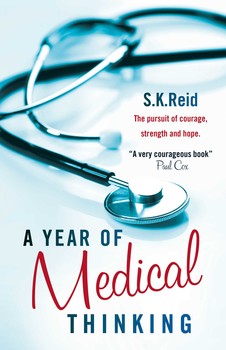 S. K. Reid (2014). A Year of Medical Thinking
S. K. Reid (2014). A Year of Medical Thinking
Australia: Jane Curry Publishing
Childlessness as a consequence of cancer is something that is increasingly common in childless women’s stories, yet it’s still rarely included in the public discourse about ‘infertility’ or ‘circumstance’. Australian writer S.K Reid’s memoir of her hopeful path towards motherhood via IVF, the devastation of baby loss and the abrupt ending of her IVF-journey due to a devastating diagnosis of cancer shows how very much more complex stories of childlessness are other than the bald dichotomy of ‘didn’t want’ or ‘couldn’t have’ which is how so many people still see it. Although this might seem like a gloomy premise for a memoir, this is an illuminating and uplifting book, and her transition from a hopeful mother-to-be to grieving that identity and embracing her unchosen ‘childless cancer survivor’ life is one that many of us can be inspired by, whatever the ‘reasons’ (or more likely reasons) for our childlessness.
Book: https://www.skreid.com.au/a-year-of-medical-thinking
Hepburn, J. (2014) The Pursuit of Motherhood. UK: Troubadour Publishing.
A frank and funny infertility memoir by British theatre director Jessica Hepburn. If you’ve had IVF, you’ll welcome seeing your experience written about in this way. If, like me, you didn’t do IVF, you’ll learn a lot! Jessica writes about how the experience impacts her relationship with her partner too, which I found helpful and not too excluding to those readers without partners. Jessica has since gone on to swim the English Channel to raise money for IVF charities and is working on her second book, ’21 Miles’ about that.
bit.ly/jessica-pursuit
http://www.jessicahepburn.com
Sheridan Voysey (2013). Resurrection Year: Turning Broken Dreams into New Beginnings.
USA: Thomas Nelson.
This book is a memoir written of the year’s sabbatical that Sheridan and his wife took in Europe as they attempt to draw a line under ten-years of failed infertility treatments. This is an excellent book for couples grieving childlessness to both read, although those who do not share the author’s Christian faith may find those passages less resonant (but still worthwhile!)
 Comstock, K. and Comstock, B. (2013) Honouring Missed Motherhood: Loss, Choice & Creativity.
Comstock, K. and Comstock, B. (2013) Honouring Missed Motherhood: Loss, Choice & Creativity.
USA, Ashland, Oregon: Willow Press.
Kani Comstock was the director of the Hoffman Institute and wrote the book ‘Journey into Love’. Discovering her infertility at 26 during the 1960s changed the course of her life. Her sister, Barbara is childfree. Together they have interviewed 12 other women. The book also contains many resources for self-guided healing, rituals and ceremonies.
Nicolette De Ridder, and Nick W. (2013) Just The Two of Us: Giving New Meaning to Our Lives Through Dealing with Infertility. UK: Epubli.
This book is about coping with infertility as a couple. The authors went through a variety of fertility tests and treatments including IVF and ICSI. After six years they pulled the plug and decided it was time to move on and lead a life not ruled by planning around cycles, hormones and fertility attempts. They both wanted their normal lives back but found it hard to grieve over a loss that was not tangible. In this book they both talk openly about all their fertility treatments, coping strategies, adoption procedure, giving up hope of having a family, grieving process and eventually their acceptance of infertility. This book tells the story from both a female and male perspective.
Fagalde Lick, S. (2012). Childless by Marriage US: Blue Hydrangea Productions.
Writer and musician Sue Fagalde Lick’s memoir and blog about life as a childless stepmother and now as a childless widow living on her own in her 60s and with an unsatisfying relationship with her deceased husband’s children.
An excellent insider’s view of a very difficult situation that so many childless-by-circumstance women are expected to take on the chin without minding!
www.childlessbymarriageblog.com
 Pamela Mahoney Tsingdinos (2010) Silent Sorority: A (Barren) Woman Gets Busy, Angry, Lost and Found. USA: Booksurge Plc.
Pamela Mahoney Tsingdinos (2010) Silent Sorority: A (Barren) Woman Gets Busy, Angry, Lost and Found. USA: Booksurge Plc.
An award-winning infertility survivor’s memoir – an ‘alternative to the momoir’ as Pamela puts it. The first story of another woman’s journey towards and through childlessness, and still one of the best. A wry and intelligent read about infertility – and after.
Pamela has gone on to become a pioneering fertility patient advocate voice in the USA with her project ReproTechTruths and has written a follow-up book, Finally Heard and I hear that another one is in the pipeline, which I’m excited about.

Lisa Manterfield (2010) I’m Taking My Eggs and Going Home: How One Woman Dared to Say No to Motherhood. USA: Steel Rose Press:
This award-winning memoir of surviving and thriving after unsuccessful infertility treatment is bold, frank and gutsy.
On social & cultural aspects of childlessness
 Jessica Hepburn (2018) 21 Miles: Swimming in Search of the Meaning of Motherhood. London: Unbound. This book is a series of 21 interviews, with 21 inspirational women, some mothers, some childless and others childfree that Jessica approached with two questions: “Does motherhood make you happy?” and “Will you eat a meal with me to help me fatten up to swim the 21 miles of the English Channel.” I was honoured to be one of them. 21 Miles is a record of that year of training, swimming, eating, talking and thinking, mixed in with a poignant love story of what was going on in Jessica’s private life as the impact of all those years of unsuccessful treatments took their toll on her relationship. I read it in one big weekend gulp last year, which is when this interview was recorded, and I couldn’t recommend it enough to anyone who wants to understand what it means to be a 21st Century woman, whether motherhood is your destiny or not… It’s beautifully written and very thought-provoking.
Jessica Hepburn (2018) 21 Miles: Swimming in Search of the Meaning of Motherhood. London: Unbound. This book is a series of 21 interviews, with 21 inspirational women, some mothers, some childless and others childfree that Jessica approached with two questions: “Does motherhood make you happy?” and “Will you eat a meal with me to help me fatten up to swim the 21 miles of the English Channel.” I was honoured to be one of them. 21 Miles is a record of that year of training, swimming, eating, talking and thinking, mixed in with a poignant love story of what was going on in Jessica’s private life as the impact of all those years of unsuccessful treatments took their toll on her relationship. I read it in one big weekend gulp last year, which is when this interview was recorded, and I couldn’t recommend it enough to anyone who wants to understand what it means to be a 21st Century woman, whether motherhood is your destiny or not… It’s beautifully written and very thought-provoking.
You can watch/read my interview with Jessica here.
 Dr. Leslie Cannold (2005) What, No Baby? Why women are losing the freedom to mother and how they can get it back. Freemantle, Australia: Curtin University Books.
Dr. Leslie Cannold (2005) What, No Baby? Why women are losing the freedom to mother and how they can get it back. Freemantle, Australia: Curtin University Books.
A thoroughly-researched book suitable for both the academic and general reader. Includes the perspective of women who are childless because of ‘social infertility’ as well as for other reasons and with a great many first-person stories as well as a strong systemic/cultural look at why so many Australian women are childless-not-by-choice.
Laura Carroll (2012) The Baby Matrix: Why Freeing Our Minds from Outmoded Thinking About Parenting and Reproduction Will Create a Better World. USA: Live True Books
An excellent and very provocative book that blows the lid off pronatalism and suggests really interesting alternative ways of thinking and behaving around having/not having children.
Melanie Holmes (2014). The Female Assumption: A Mother’s Story, Freeing Women from the View that Motherhood is a Mandate. USA: Create space. A mother of three, Melanie Holmes has written a frank and moving book about the assumptions and sacrifices of motherhood that really blows the lid off the ‘motherhood myth’. Well researched and is about one-third research findings from interviews with mothers and childless/childfree women; one-third self-help (for those ambivalent about motherhood and those childless/childfree who want to make peace with their life) and one-third warts-n’all motherhood memoir bit.ly/female-assumption www.MelanieHolmesAuthor.com
 Debbie Slevin (2015). UnPregnant Pause: Where Are the Babies? One woman’s journey to understand why our daughters are not having children.
Debbie Slevin (2015). UnPregnant Pause: Where Are the Babies? One woman’s journey to understand why our daughters are not having children.
If you wanted a book to give to your mother, this is it! Debbie Slevin is a mother who longs to be a grandmother, and yet has watched her children (son and daughter) struggle to date, mate and become parents. Debbie interviews men and women of all ages, as well as every kind of sociologist and specialist you can think of, in order to get her head around why it’s so different for this generation. Although there’s little here that those of us living this will find new, it’s refreshing to see one of ‘our’ mothers learning why our reality isn’t a quick fix, how structural, economic and ideological factors weigh in, and how and why finding a mate and having a family is no longer a given for many women today, even if they want it.
On the single and childless experience
 Kathleen Guthrie Woods (2021) The Mother of All Dilemmas: Dreams of Motherhood and the Internship that Changed Everything.
Kathleen Guthrie Woods (2021) The Mother of All Dilemmas: Dreams of Motherhood and the Internship that Changed Everything.When you’re a single and childless-by-circumstance woman approaching the event horizon of your fertility, still hopeful that somehow partnership and children might happen for you, one of the most common pieces of ‘helpful advice’ (and I use those quotes advisedly!) you might hear is, ‘Why don’t you just have one on your own?!’ It can also be phrased in the past tense, once you’re a little older, accompanied by that pitying head-tilt… These enquires are usually delivered as if this were (a) something that hadn’t ever occurred to you and (b) slam-dunk easy. When Guthrie Woods found herself in exactly that position – turning forty without Mr Right anywhere in sight – she decided it was time to seriously consider it. This book, ‘The Mother of All Dilemmas’ is the result: part memoir, part reportage, it records Guthrie-Woods’ painfully honest fact-finding mission as she tries to work out whether she had what it took to be a single mother by choice: emotionally, logistically, financially, physically and spiritually. One of the things that this book touches on, which is something many Gateway Women members have shared with me over the years, is how perhaps sometimes the desire for a child can be wrapped up in a deep and natural craving for daily love and physical companionship; being a single and childless not-by-choice woman over an extended period of time can lead to acute feelings of physical and emotional deprivation that are rarely discussed openly; I really appreciated how Guthrie Woods was determined to be honest with herself about her own motivations and whether they were reasonable expectations to place on a child. I feel this book should be thrust into the hands of every person who dares to say ‘Why not have one on your own?’ to a single, childless woman – I guarantee they’ll never say it again! I also think it would offer information and solace to a great many single childless women struggling to move forward either with pursuing the hope of solo parenthood or making peace with not doing so. This is the first time I’ve seen the dilemma of whether to have a baby, or not, as a single woman so well-articulated, and Guthrie Woods has done future generations of women facing this difficult choice a great service with her painstaking honesty and emotional generosity. More here.
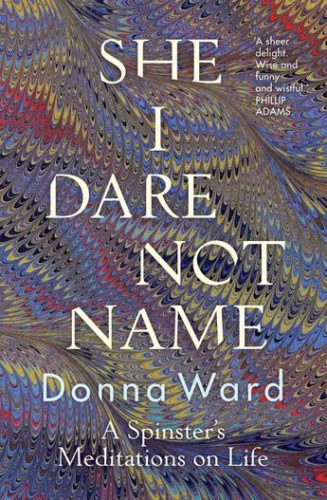 Donna Ward (2020) She I Dare Not Name: A Spinster’s Meditations on Life. AUS: Allen & Unwin
Donna Ward (2020) She I Dare Not Name: A Spinster’s Meditations on Life. AUS: Allen & Unwin
Part memoir and part social history, combined with a blistering critique of the sexism and pronatalism encountered daily by an involuntarily single and childless woman in her mid-sixties, this is a powerful book. In it, Donna Ward an Australian psychotherapist and publisher, looks back over her life, from childhood onwards, to see if she can find ‘clues’ as to why she, amongst all her peers, did not get married and have children, even though it was what her heart desired. It charts her desperation as she turned forty, her complete lack of preparedness for knowing how to ‘live fifty’ and the growing peace and acceptance that she dug deep to find. Luminously written, thought-provoking, self-compassionate, provocative, funny and deeply moving, this unputdownable book explores what it’s like to live a full, interesting and meaningful life whilst also waiting for the life that she (and others) always expected would happen. Her meditations on the impact of unchosen silence and solitude, and the dark night of the soul that she went through to make friends with it, is both deeply spiritual and utterly relatable. An outstandingly humane and important book.
Instagram: @DonnaWardWriter. Donna’s website: https://www.donna-ward.com.au/
Catherine Grey (2018). The Unexpected Joy of Being Single. UK: Aster/Octopus.
Written by a Millennial for Millennials (or those older than that who want to understand modern dating and singlehood more!) Catherine Gray took a year off dating in her late 30s to both take a break from the treadmill of modern dating and also to understand for herself what being single was, and why she (and everyone else) seemed to have a problem with the idea of singlehood as any kind of happy state in itself. Confessional and banterish in tone, this well-researched (if poorly referenced!) book chronicles that year and dives deep into her own life and therapy to understand why forming (and keeping) long-term partnerships was difficult for her, expands that to include the challenges that all single women (and people) face. She learns to break down the sexist, patriarchal idea that as a single, childless woman in her late 30s there must be ‘something wrong with her’. Whilst she is more ambivalent about having children than grieving them, she does give space to the ‘double whammy’ experience of being single and childless and how you’re not seen as a ‘proper’ adult (yet). My only issue with her book is the oft-quoted research that shows that the idea that your fertility falls off a cliff at 35 is flawed due to it being based on 15th-17th-century data (p.74). The fact is, fertility does decline with age, getting steeper after 35 and even more so at 40, and you can read an analysis of the French data and other population studies here). http://bit.ly/2MgTllK
 Sara Eckel (2014) It’s Not You: 27 (Wrong) Reasons You’re Single. USA, New York: Perigree (Penguin Group).
Sara Eckel (2014) It’s Not You: 27 (Wrong) Reasons You’re Single. USA, New York: Perigree (Penguin Group).
Sara Eckel’s wonderful book, based on her ‘Modern Love’ column in the New York Times, debunks every common myth about why you’re single, from, ‘You’re too picky’ to ‘You’re too needy’, etc. Sara is childless by circumstance, having married late, after long-term singlehood. I recommend this book to everyone who’s single, and to all parents or well-meaning coupled friends of solo childless women!

Melanie Notkin (2014) Otherhood: Modern Women Finding a New Kind of Happiness. USA: New York: Seal Press.
Melanie Notkin, now in her mid-forties is well known as the Founder of SavvyAuntie.com – the website for women who love the children in their life but don’t have them. In ‘Otherhood’ she reveals her own story as well as that of other women that she interviews – one of wanting to find the right partner to have children with, but it never quite happening. The first two-thirds of the book have a the same strong and compassionate tone as her Huffington Post articles, with the final third being a bit more ‘Sex in the City’ with lots of stories of dating and parties in Manhattan. This book has taken ‘social infertility’ into the mainstream and is well worth reading.
www.huffingtonpost.com/melanie-notkin
Bella DePaulo (2007) Singled Out: How Singles Are Stereotyped, Stigmatized, and Ignored, and Still Live Happily Ever After. USA, New York: St Martin’s Press.
Bella DePaulo is an American academic and writer and the most respected voice in the world of ‘solo’ thinking. Singled Out was her first book written for a non-academic audience and is, as she describes it: ‘a myth-busting, consciousness-raising, totally unapologetic take on singles and their place in contemporary American society’. A ground-breaking book.
Her website is packed full of articles and resources and she also hosts a private community for singles (nothing to do with dating) on Facebook.
http://belladepaulo.com bit.ly/single-community
Sasha Cagen (2004) Quirky alone: a manifesto for uncompromising romantics. USA, NY: HarperSanFransico, HarperCollins Publishers Inc.
A book that started a movement! Sasha Cagen’s book is part autobiography, part social history of those who ‘enjoy being single but who are not opposed to being in a relationship’. It doesn’t present solos as somehow in need of a ‘solution’, nor does it gloss over the difficulties of a solo life. The book is laid out in a quirky style with lots of old adverts and clippings and interviews with solo men and women which isn’t that easy to read in one go, but is great for dipping into. Cagen has built some great ideas around this initial book (Tango holidays anyone?!) and her website is well worth exploring.

Barbara Feldon (2003) Living Alone and Loving It: A Guide to Relishing the Solo Life. USA, New York: Simon and Schuster. Barabara Feldon is an actress (now in her 80s) and she wrote this wonderful book after what she describes as ‘a relationship impasse’ left her living alone and without the emotional or social skills to do so. It’s an excellent book which covers all the main topics and hasn’t dated at all.
On ambivalence and deciding whether to have children or to remain childfree
Kamalamani (2016) Other than Mother: Choosing Childlessness with Life In Mind: a private decision with global consequences. UK, Alresford: Earth Books (John Hunt Publishing).
Written by a British Buddhist psychotherapist, this thorough, philosophical and helpful book explores the authors own decade long exploration of her choice whether to become a mother or not. She herself decided to remain childfree, but it was by no means an easy choice, and she does not promote it as the ‘right’ choice for everyone. Highly recommended for its inclusion, without any kind of preaching, of the environmental aspects of the decision to parent. Recommended to those also looking to make peace with not having had children, not by choice.
www.facebook.com/otherthanmother

Denise L. Carlini and Ann Davidsman (2016) Motherhood: Is It For Me? Your Step by Step Guide to Clarity. With a Foreword by Mardy S. Ireland. USA, PA: Transformation Books.
This book is much needed as it addresses one of the core social taboos that make having a frank dialogue about this so difficult – ambivalence. As a society, we’re only just beginning to create a space and a language for how to navigate these choices, and this thorough, intelligent, empathic, non-judgemental book takes us a big step forwards. Whether you wish to explore and be sure of your reasons for choosing to live childfree, or to understand what’s blocking you from actively pursuing the path to motherhood, this book will be your friend and guide. I know many women who will wish it had been around twenty years ago, and I am grateful to Denise and Ann for making it available to the generations of daughters that come after us.
Leibovich, L. (Ed) (2007) Maybe Baby: 28 Writers Tell the Truth About Skepticism, Infertility, Baby Lust, Childlessness, Ambivalence and How They Made the Biggest Decision of Their Lives. USA, New York: Harper. With a Forward by Anne Lamott.
The book is a series of essays, ranging from stories of ambivalence, of choosing to remain childfree and of going on to become a parent. The range of voices is inclusive and frank and two-thirds of the book applies to those of us who don’t have children. The section on becoming a parent is worth reading too, as some of the essays bust open the ‘most meaningful thing I’ve ever done’ pronatalist mantra.
On growing older without children
 Athill, D. (2009) Somewhere Towards The End. UK: Granta Books.
Athill, D. (2009) Somewhere Towards The End. UK: Granta Books.
Memoir of advancing into old age as an unmarried, childless woman. Unsentimental, intelligent, unflinching and uplifting.
www.grantabooks.com/Diana-Athill

Gross, J. (2011) A Bittersweet Season: Caring for our Aging Parents – and Ourselves. USA, New York: Random House.
Jane Gross is an American journalist who wrote a memoir of caring for her ageing parents, and how it changed her. Childless herself, she then went on to create ‘The New Old Age’ blog at the New York Times which, although it’s now ended, is still available to read and highly recommended.
http://newoldage.blogs.nytimes.com
On grief & loss
Megan Devine (2017) It’s OK That You’re Not OK: Meeting Grief and Loss in a Culture that doesn’t Understand. USA: Sounds True
The very best bullshit-free guide to grief written. Although this book isn’t about childless grief, it speaks so passionately and eloquently about how misunderstood grief is that I cannot recommend it highly enough. It’s the book that all in deep grief need, and it’s one to give to others who try to support us in grief to help them stop getting ‘support’ wrong!
- Radio Interview: “The Howl at the Centre of Grief” on the Insight at the Edge Podcast: bit.ly/gw-megandevine
- Book: http://bit.ly/2NY5c4X
- Audio Book on Audible.co.uk and Audible.com: adbl.co/megandevine
- Website: http://www.refugeingrief.com/
- Listen to more interviews with Megan Devine here: http://www.refugeingrief.com/meganspodcasts/
 Lesley Pyne (2018) with a Foreword by Jody Day. Finding Joy Beyond Childlessness: Inspiring Stories to Guide You to a Fulfilling Life. UK: Make Your Mark Global Publishing.
Lesley Pyne (2018) with a Foreword by Jody Day. Finding Joy Beyond Childlessness: Inspiring Stories to Guide You to a Fulfilling Life. UK: Make Your Mark Global Publishing.
As I wrote the foreword for this book I can wholeheartedly recommend it!
You can read my foreword, and watch me briefly interviewing Lesley here
www.lesleypyne.co.uk
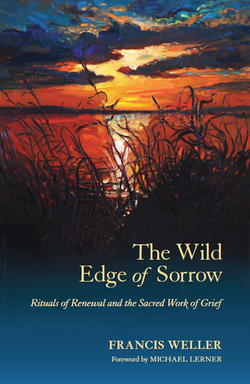 Francis Weller (2015) The Wild Edge of Sorrow: Rituals of Renewal and the Sacred Work of Grief
Francis Weller (2015) The Wild Edge of Sorrow: Rituals of Renewal and the Sacred Work of Grief
USA: North Atlantic Books
In all human cultures, grief has been a collective experience, held by the community. It is only in very recent times that this has dwindled down to it only being witnessed in funerals and then for the busyness of modern life to be swiftly resumed. Psychotherapist Francis Weller has been conducting ‘grief rituals’ for over 30 years, as well as seeing clients privately and in this book he outlines, with great beauty and lucidity, how much we are missing as individuals and as a society through losing our connection with the power of grief to heal our hearts, our lives, our communities and ultimately, our relationship with the planet. This is a powerful and luminous book that has the power to change forever the way you look at, experience, support, companion and respect your own, and other’s grief.
Book: https://www.francisweller.net/books.html
Author’s website: https://www.francisweller.net/
Article: “The Geography of Sorrow: An Interview with Francis Weller”
Lisa Manterfield (2015) Life Without Baby: Surviving and Thriving When Motherhood Doesn’t Happen. USA, Redondo Beach, CA: Steel Rose Press. A compilation of Lisa Manterfield’s four e-books, in book form, this book guides you through the process of letting go of the dream of motherhood and moving towards accepting a life without children. Filled with Lisa’s own honest and revealing experiences, and that of many of those women who are part of the ‘Life Without Baby’ online community, this is an excellent, practical and reassuring read for any childless woman working to make sense of her experience. http://lifewithoutbaby.com/books/
 Cleantis, T. (2015). The Next Happy: Let Go of the Life You Planned and Find a New Way Forward. USA, Minnesota: Hazleton Publishing. This wonderful book takes therapist Tracey Cleantis’ experience as a infertility survivor and turns it into a no-nonsense, wise-cracking book. Suitable for everyone who’s ever had to give up on a dream and find another reason to get up in the morning. Highly recommended, not least for her ‘Movie Rx’ sections at the end of each chapter where she recommends a movie to help you deal with your situation.
Cleantis, T. (2015). The Next Happy: Let Go of the Life You Planned and Find a New Way Forward. USA, Minnesota: Hazleton Publishing. This wonderful book takes therapist Tracey Cleantis’ experience as a infertility survivor and turns it into a no-nonsense, wise-cracking book. Suitable for everyone who’s ever had to give up on a dream and find another reason to get up in the morning. Highly recommended, not least for her ‘Movie Rx’ sections at the end of each chapter where she recommends a movie to help you deal with your situation.
http://bit.ly/nexthappy
http://www.traceycleantis.com/
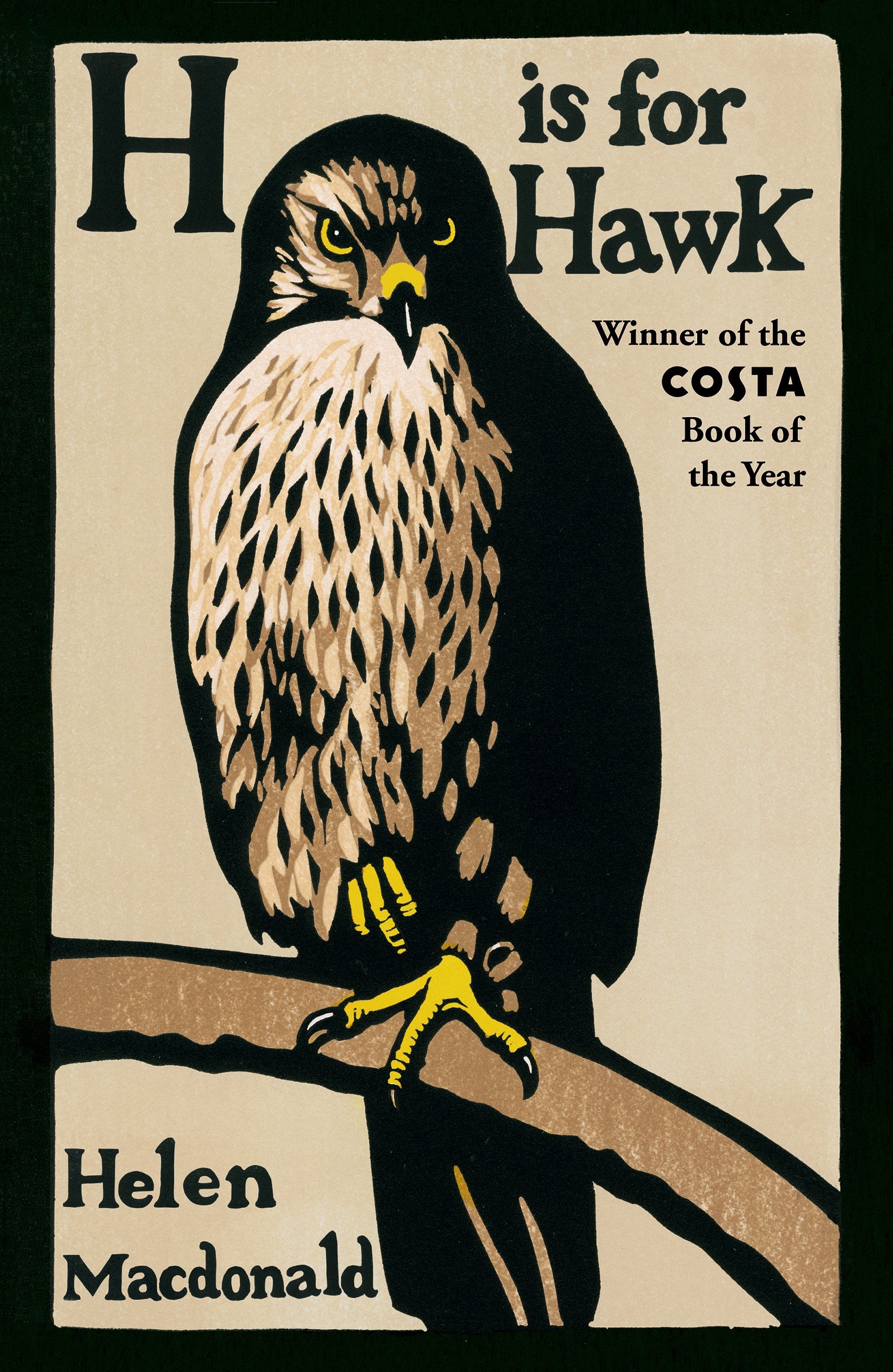
Helen Macdonald (2014). H Is for Hawk. UK, London: Vintage Books
An extraordinary memoir, written by a childless woman grieving her father’s death, who becomes obsessed with reigniting a childhood obsession: to tame a hawk. Through her relationship with her new hawk, Mabel, she comes to learn what it is to be human, and what can and cannot be contained and controlled about life, and the human, and animal, soul. The author is single and childless and although the book is not about that, the texture of that lived experience is a hugely important part of this beautiful book.
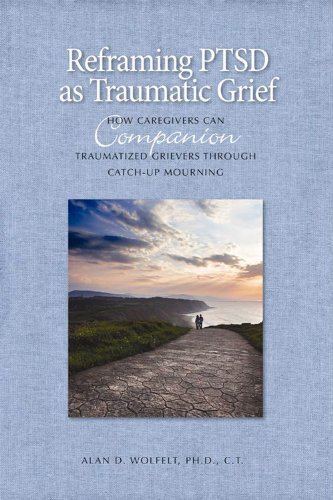 Alan D. Wolfert (2013). Reframing PTSD as Traumatic Grief: How Caregivers Can Companion Traumatized Grievers Through Catch-Up Mourning.
Alan D. Wolfert (2013). Reframing PTSD as Traumatic Grief: How Caregivers Can Companion Traumatized Grievers Through Catch-Up Mourning.
This humane and practical book fills a very important gap in our understanding of grief as a body-based experience of trauma. It explores ‘complicated grief’ as a form of PTSD (and vice-versa) and explores a more holistic de-pathologized model both for grievers and those who ‘companion’ them. He brings something vital back into the discussion of grief, that of ‘mourning’ and his ‘six needs of mourning’ and the necessary community-oriented, person-to-person experience this requires – something which so many grievers do not easily find, particularly those experiencing disenfranchised or complex grief (or often both).
Book: https://www.centerforloss.com/bookstore/reframing-ptsd-as-traumatic-grief/
William Bridges (2004). Transitions: Making Sense of Life’s Changes – Strategies for Coping with the Difficult, Painful and Confusing Times in Your Life. USA, MA: Da Capo Books (Perseus Books Group).
Although this book isn’t specifically about grief, one of the things I’ve learned about loss is that all change, even good, desired change brings a side-order of loss because we can’t welcome anything new into our life without letting go of the old. Bridges’ takes readers step by step through the three stages of any transition: The Ending, The Neutral Zone, and, in time, The New Beginning. A simple and powerful guide to the process of letting go that may resonate with you if you don’t want to read anything too ‘obviously’ about grief, but do want to understand better how to support yourself through the changes you’re going through. http://bit.ly/bridges-transition
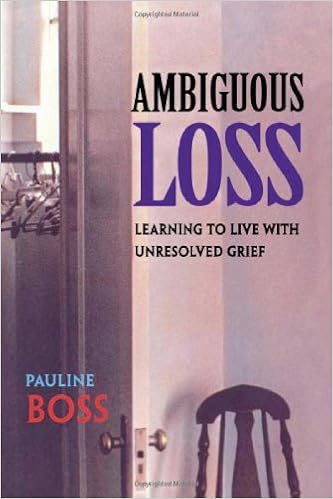 Pauline Boss (1999). Ambiguous Loss: Learning to Live with Unresolved Grief.UK/USA: Harvard University Press.
Pauline Boss (1999). Ambiguous Loss: Learning to Live with Unresolved Grief.UK/USA: Harvard University Press.
The concept of ‘ambiguous loss’ developed by Pauline Boss initially in her work with the long-term impact of immigrants was one that she then expanded to include many other forms of loss where the ‘object’ of loss is not clearly ‘gone’. This has proved particularly helpful in understanding the experience of loss for those who grieve childlessness, often seen by others as a loss that was never ‘there’ in the first place, and for those who are single not by choice, who live in a double-reality where they might one day be partnered but are currently mourning the absence of a yet-to-be reality. Jody Day explores the ambiguous loss of unchosen singleness in Chapter 4 of the 2nd edition of Living the Life Unexpected (2020) in the section, “Grieving Alone: Solo-Women’s Grief’.

Chodron, P. (1997) When Things Fall Apart: Heart Advice for Difficult Times. UK, London: Element / HarperCollins. For me, this is one of the best books to turn to when you don’t know where to turn. It was the very first ‘spiritual’ book I ever read and it’s still one of the best. You don’t need to be a Buddhist to find great comfort in Pema’s wise, funny and compassionate writing. I also recommend audio book versions read by her – she has a wonderfully warm and self-deprecating style and yet conveys great compassion towards her own, and all, our frailties as human beings.
bit.ly/chodron
www.pemachodronfoundation.org

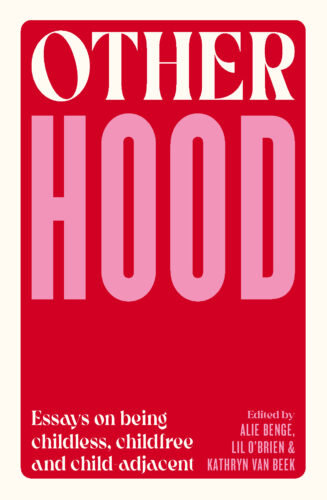
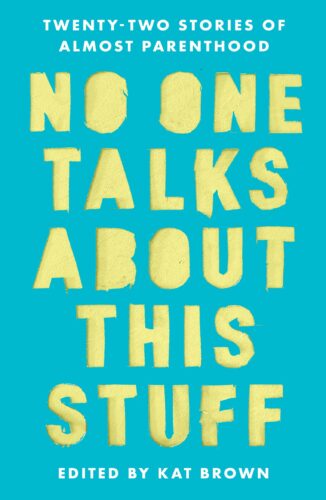

What's your experience?